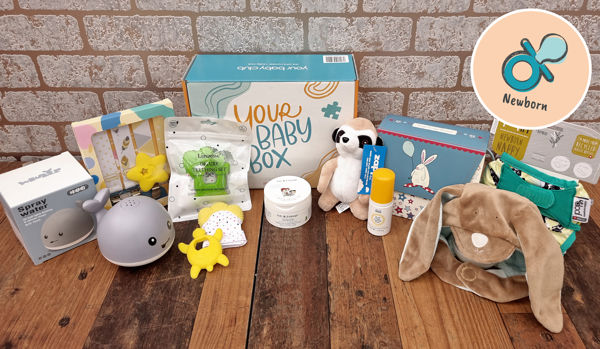So, you've had your booking appointment and may even have had your scan results back confirming everything is sailing along nicely. For most women, that continues to be the case, but sometimes you can be thrown a curveball. There are certain conditions that can develop in pregnancy that may mean that you need a little extra monitoring to keep you and your baby safe and well. This could be anything from pre-eclampsia to obstetric cholestasis.
Your midwife will monitor you throughout pregnancy and should anything develop, they will refer you to a consultant obstetrician to discuss the plan moving forwards.
Gestational Diabetes (GD)
GD doesn't always carry symptoms and is only detected when blood sugar levels are tested during screening.
Gestational diabetes is caused by insulin resistance, like type 2 diabetes, but disappears after birth and most women give birth to healthy babies.
Gestational diabetes is treated through diet changes and monitoring of blood sugar levels, and in some cases, with medication.
High Blood Pressure (Hypertension)
If you take medication for high blood pressure or hypertension, you will need to tell your midwife so they can monitor you more closely.
To reduce high blood pressure and keep it within the normal range, you should stay as active as possible during pregnancy.
Keeping your salt intake low and eating a well-balanced diet can also help to reduce your blood pressure.
Pre-eclampsia
Pre-eclampsia usually (but not always) develops later in pregnancy. In some cases, pre-eclampsia can cause severe complications for both mother and baby. Although in most cases, it does not affect the baby’s health.
Symptoms can include swelling of the hands and face, severe headaches, nausea, vomiting, dizziness, blurred vision, pain below the ribs, and sudden weight gain not attributed to baby's growth.
The only action that will fully resolve pre-eclampsia is the delivery of your baby. However, if you are still a few weeks away from delivery, you may be given medication to control the symptoms until it is safe for baby to be born.
Low-Lying Placenta (Placenta Praevia)
Placenta praevia, or low-lying placenta, is where the placenta attaches to the bottom of a woman’s uterus, partially or entirely covering the cervix.
Placenta praevia is a condition that needs to be monitored, and the placenta usually moves to the correct position without intervention.
If the placenta hasn't moved by the time your baby is due to arrive, your baby will need to be born by caesarean section.
Obstetric Cholestasis
Itching is common in pregnancy, and usually caused by raised levels of hormones in the blood.
Your bump may also feel itchy while your skin stretches to accommodate your growing bump but itching during pregnancy can also be a symptom of a liver condition called obstetric cholestasis. If your itching is particularly bad at night and especially on your hands and feet, it is important that you let your midwife know, so you can be checked. Obstetric cholestasis carries a higher risk of stillbirth, meaning you should be monitored more closely.
A simple blood test will diagnose this, and you will have regular liver function tests so your doctor can monitor the condition. Are you worried about Obstetric Cholestasis? Visit The Honest Midwife for further information.
Preterm Labour
Babies born before 37 weeks of gestation are referred to as 'preterm' or 'premature'. Roughly 8 in 100 babies were born premature in the UK in 2019.
If you go into premature labour, your midwife or doctor may offer medication to help slow down or stop your delivery.
If your labour starts before 36-weeks, you may be offered steroids to help your baby's lungs mature. After this point, your little one's lungs should have developed enough to be able to breathe on their own without this medication being given.
If you are between 24 and 29-weeks pregnant and in premature labour, you will be offered magnesium sulphate to protect the baby’s brain development as well as steroids to help your baby's lungs mature.
Nuchal Cord
When the umbilical cord gets wrapped around your baby’s neck before birth, it is referred to as a 'nuchal cord' and is surprisingly common but unlikely to cause any complications. Surrounding the vessels supporting your baby, is a substance called 'Wharton's jelly', which provides protection to your baby's lifeline.
Breech Baby
If your baby is bottom or feet first, this is known as breech position.
If baby is still in breech position at 36-weeks, you might be offered, an 'external cephalic version' (ECV) where your obstetrician will try to turn the baby by applying pressure on your abdomen.
It can be uncomfortable, but around 50% of breech babies are turned with this method. If ECV doesn't work (and babies can sometimes move back to breech), your options for delivery will be discussed with you.
Group B Strep
Group B Streptococcus (GBS) is a transient (comes and goes) bacterium commonly found in the body and usually causes no harm to you - which is why it is not routinely tested for in pregnancy in the UK. On rare occasions, it can be passed onto baby during labour, and even more rarely, can cause more serious infections such as meningitis, sepsis, and pneumonia in baby. If you test positive for GBS following a urine test, you will be given antibiotics. You will also be administered antibiotics during labour to protect baby and prevent any risk (small) of the infection passing onto them. If baby shows signs of developing GBS after birth, they too will be treated with antibiotics.
Remember, knowledge is power. Knowing about various complications and things that could arise during pregnancy and labour can greatly improve your mental ability to adapt and stay calm when met with diagnosis, complex terminology, and changes to your treatment/care.






